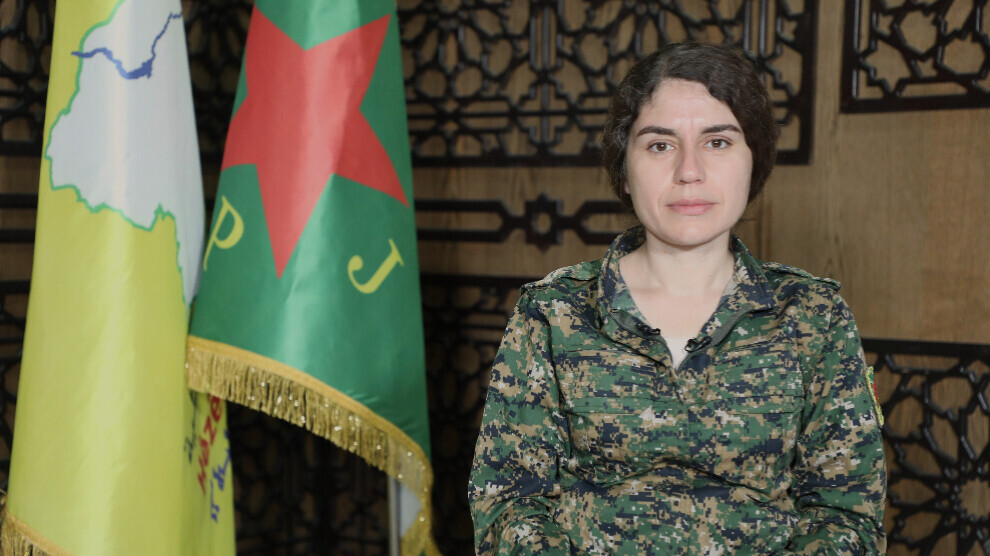YPJ spokeswoman: ISIS revival poses major threat to Syria
Roksan Mohammed, spokesperson for the Women’s Protection Units (YPJ), cautioned that ISIS is trying to reestablish itself through sleeper cells, endangering all of Syria.

HESNA MUHEMED
Hasakah – Since the founding of Rojava on principles of democracy, equality, freedom, and justice, ISIS has consistently sought to undermine the system. In response, the Syrian Democratic Forces (SDF), Women’s Protection Units (YPJ), People’s Protection Units (YPG), and local communities in northeast Syria have continued their struggle against the extremist group.
The defeat of ISIS in Kobani, Raqqa, and other areas drew global attention, and the region’s security forces succeeded in dismantling the group’s infrastructure. Yet sleeper cells continue attempts to reactivate operations. Al-Hol camp remains among the most dangerous sites in north and East Syria, housing thousands of families and children linked to ISIS. Recent efforts to revive the group there have been thwarted by the YPG and YPJ.
Unity needed to defeat ISIS
Roksan Mohammed emphasized the renewed threat ISIS poses, not only regionally but internationally. She noted that the group’s ultimate goal is to revive its extremist ideology, which remains adaptable and resilient.
“There is a need for greater, coordinated resistance. All parties must unite in a common struggle to eliminate ISIS ideology. Our forces have been fighting this terrorism since 2014 by all possible means,” she said, stressing that while ISIS’s ideology was previously dismantled, the group now seeks to reintegrate into society through attacks and pressure.
She added that ISIS exploits areas lacking governance or institutions, taking advantage of instability to reassert itself. “Without comprehensive cooperation and a democratic system, it will be difficult to contain ISIS’s spread. In Syria today, the absence of a democratic framework leaves space for massacres and instability, which ISIS seeks to exploit.”
Roksan Mohammed also criticized the post-Baath power structures, noting that extremist factions such as Hayat Tahrir al-Sham under Al-Julani have opposed inclusive governance, particularly the recognition of women’s rights. The Autonomous Administration of Rojava has continued dialogue and efforts to establish a decentralized, democratic Syria where all communities are represented.
Ongoing security campaigns
Operations to dismantle ISIS networks in and around camps continue, resulting in the arrest of 11 members and the disruption of multiple cells. Roksan Mohammed highlighted that women in children’s camps continue to propagate ISIS ideology, warning of potentially dangerous developments ahead.
“Rojava’s revolution is founded on humanity and women’s protection. Our struggle continues to safeguard women and society. Attacks specifically target women, making self-defense critical,” she said, adding that unorganized women in regions like Sweida and Shengal (Sinjar) became primary targets of extremist violence due to weak organizational structures.
